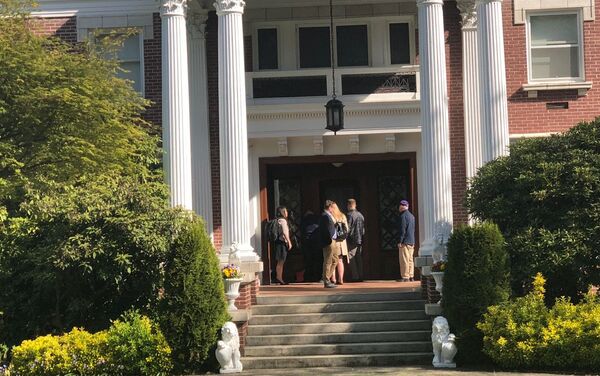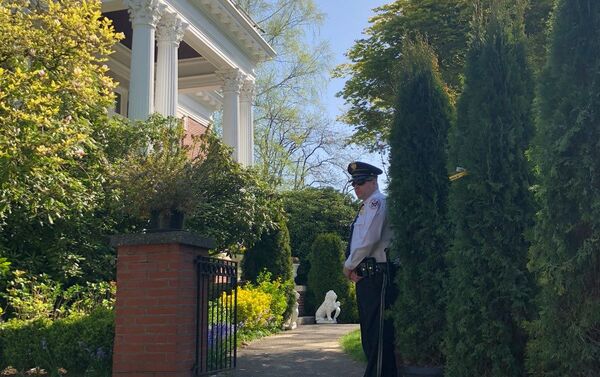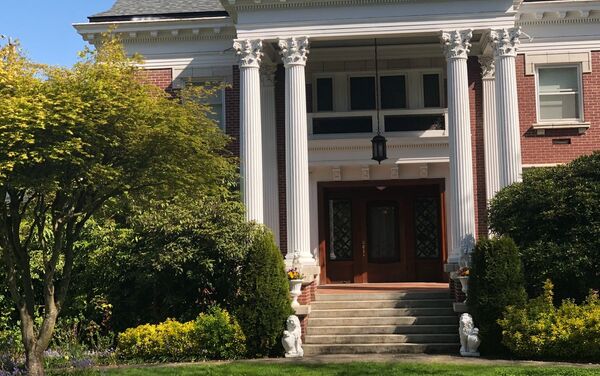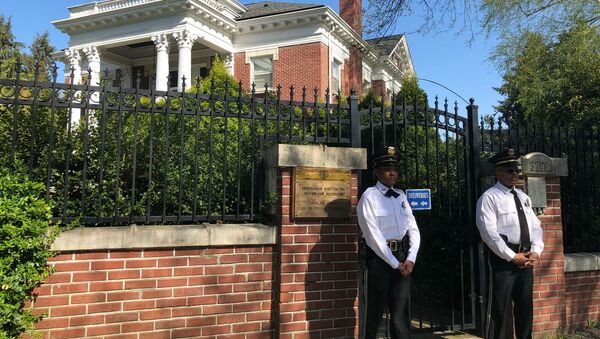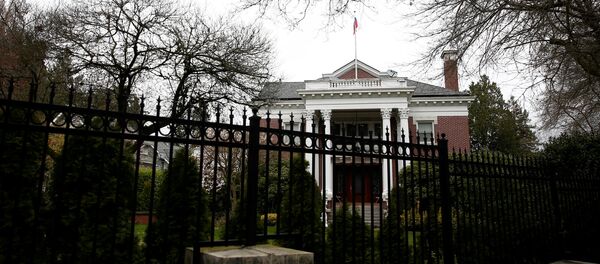SEATTLE (Sputnik) – The United States has violated the diplomatic convention as well as international law by breaking into the closed residence of the Russian Consul General in Seattle, the head of the consular section at the Russian Embassy in Washington, Nikolay Pukalov, told Sputnik on Wednesday.
"We are witnessing a gross violation of the diplomatic convention," Pukalov said.
He added that US authorities violate both international and domestic laws by entering the diplomatic property of the Russian Federation.
“Russia did not agree on lifting diplomatic immunity from its diplomatic property in Seattle… Russia reserves right to adequately respond,” Pukalov said.
Meanwhile, US authorities walked into the building of the Russian Consul General residence after the front door locks were broken from inside, a Sputnik correspondent reported from the scene.
READ MORE: Moscow Blasts US for Trying to Enter Closed Russian Consul General's Residence
At approximately 9.30 a.m. local time, US authorities broke the lock of the main gate and entered the premises of the closed residence of the Russian consul general. They were holding a blue cover over the locksmiths doing their job so that Russian and local media could not take pictures.
After the gate was opened, the US officials headed to the front door leaving two police officers outside the entrance. However, locksmiths failed to immediately break the lock.
Eventually, the US authorities broke into the residence through the basement and unlocked the front door from inside to let State Department representatives walk into the building. Acting Director of the Office of Foreign Missions Cliff Seagroves was among the State Department staff on site.
At the same time, on the side of the residence, workers from a locksmith company turned the water on in the building which was cut off by the Russian diplomats before departure.
Department of State spokesperson Heather Nauert said US officials entered the closed Russian diplomatic residence in Seattle to ensure that it had been vacated. She noted the US inspection was not an invasion, but rather a lawful response to Russia's behavior.
The US officials remained in the building throughout the day. The lights were turned on in the building although Russians diplomats cut off power and electricity before departing. US special services also broke the locks on the back entrance and placed a police officer there as well.
As it was getting sunnier and hotter, the number of media representatives was growing. Two media helicopters were flying over the area for some time as well. Some American journalists, passers-by and locals were expressing their sadness and some even frustration over the US government actions.
On March 26, US President Donald Trump ordered the expulsion of 60 Russian diplomats and closure of the Russian Consulate in Seattle over allegations about Moscow's involvement in the poisoning of former Russian intelligence officer Sergei Skripal and his daughter Yulia in the United Kingdom. Russia has strongly and repeatedly denied involvement in the case.
READ MORE: Moscow Blasts US for Trying to Enter Closed Russian Consul General's Residence
From April 1 through April 24, the residence served as headquarters to prepare the building for evacuation and consolidation and to protect the interests of Russian citizens. When the Russian Consulate General closed before the April 1 midnight deadline set by the US government, all material objects and documents were transferred to the residence of the consul general.
In early September, Russian diplomats lost access to several diplomatic properties when US authorities ordered the closure of the Russian Consulate General in San Francisco and trade missions in New York City and Washington, D.C. US officials said the move came in response to Moscow's decision in late July to reduce the number of US diplomatic staff in Russia to 455 people, the same number of diplomatic personnel Russia had in the United States.
The US authorities also removed the Russian flags from the seized Russian diplomatic buildings and later returned them to the Russian side.
Moscow said that the actions of the United States constituted a violation of international law, including of the Vienna Convention on Diplomatic and Consular Relations.
